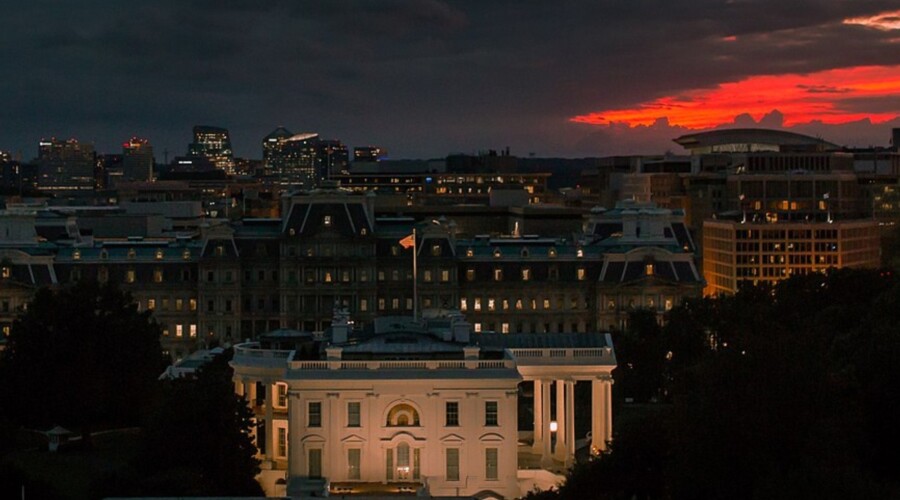Export
This interview was posted with kind permission from KGOU local public radio, Norman, Oklahoma.
ZACH MESSITE: This is World Views. I’m Zach Messitte. Coming up next: Joel Rosenthal, president of the Carnegie Council for Ethics in International Affairs. We sat down to talk with him about why, despite the progress in many areas of our world, it continues to be marked by violence, genocide, and seemingly endless cycles of ethnic conflict.
Joel Rosenthal, thank you for joining us on World Views.
JOEL ROSENTHAL: I’m delighted to be here. Thanks for the opportunity.
ZACH MESSITE: What does it mean to have global ethics? How do you describe this concept?
JOEL ROSENTHAL: The way to begin the conversation is the fact that we live in a globalized world. We all live within systems that are global. We can feel this in our daily lives. We’re part of a global economy. We’re part of a global climate. We’re part of a global information system. Whether we want to be or not, or whether we admit it or not, we live in a global world.
The idea that we have to think about what that means morally, what our connection is to these systems, to the rest of the world—global ethics is an attempt to think about what our duties and responsibilities are, and what our connection is.
ZACH MESSITE: Do different parts of the world and even different parts of the country have different perspectives, depending on where you live or where you sit, on the importance of global ethics, or is there a universal sense of what that means?
JOEL ROSENTHAL: The experience of our daily lives is different. If you’re in New York, Los Angeles, or San Francisco, you may feel it in a more immediate way. You may feel this idea that we live in a globalized world based upon the people that you see, the information that you have, whether it’s Wall Street or whatever. But I wouldn’t overplay that.
If you’re here in the Midwest, I would argue strongly that, yes, you’re part of the global system. Whether it’s the oil market, the cattle market, the commodities market, or the global environment, people would be kidding themselves to think that they’re somehow not part of a planetary system.
SUZETTE GRILLOT: To take this question a little bit further, and to not look at it in different parts of the country or different cultures, can ethics look different depending on whether you are looking at it from individual level ethics versus community-based ethics versus global ethics? Are we talking about the same type of ethics across these nested levels?
JOEL ROSENTHAL: Part of this project, this idea of looking at global ethics, is to connect those different levels. It is integrated and is a concentric-circle idea. Yes, you start with individuals. You start with, what kind of choices do I make? What are my values? How do they connect to those of my community? Then how do those connect to the world?
My argument is that you can be consistent. We often think in terms of community standards versus universal standards, or patriotism versus internationalism. That’s often the wrong way to think about things. There are ways to think in an integrated way about serving our community, our country, and the world, and this can be a consistent project.
SUZETTE GRILLOT: What happens when you have ethical principles that conflict with one another, not only within the individual level? I can imagine that everyone—you and I and Zach and others—might have different values. What happens when those principles conflict from the individual to the community to the global level?
JOEL ROSENTHAL: That’s where the action is. This is where we begin to engage in moral and political arguments. Values often conflict. We need to have ways to deal with these conflicts in values. A lot of what ethics is, is about managing our differences. How do we manage the differences that we have? The project isn’t necessarily to get everybody to agree on one single, unified, universal, global standard. In fact, that’s a little bit frightening. The project is more to see how individuals and communities differ and how to find ways to live with differences.
In some ways, what I’m searching for is a set of moral minimums. We may not be able to agree on the good life, because there are multiple views of the way a community should work or the way an individual should live one’s life. But what I’ve been focusing on is that we can get a lot of agreement on things that are definitely bad and things we can work on to improve. To me, the road to the good life is trying to open up a space for human flourishing so people can fulfill their destiny. Again, that goes to providing basic rights. For me, that’s the place where I start. When push comes to shove, that’s the area that I want to defend.
ZACH MESSITE: This segues nicely into talking a little bit about current events, issues of how you protect people’s rights, and the idea that you occasionally have to use violence or force in order to get these rights made available to everyone.
President Obama has clearly wrestled with this issue throughout his career, first as senator and, prior to that, in public life, as someone who has thought about rights and the role of government in protecting those rights.
When he was awarded the Nobel Prize in 2009—which some said was given on the hope that he had thought about global ethics in a different way than his predecessor—he talked about how people like Martin Luther King and Gandhi were important in terms of understanding his philosophy, but as commander-in-chief, as head of the sole superpower in the world, he had a special responsibility.
I would like to just listen quickly here to an excerpt from that Nobel Prize speech in 2009 and get you to comment on that.
“But as a head of state sworn to protect and defend my nation, I cannot be guided by their examples alone. I face the world as it is and cannot stand idle in the face of threats to the American people, for make no mistake: Evil does exist in the world. A nonviolent movement could not have halted Hitler’s armies. Negotiations cannot convince al Qaeda’s leaders to lay down their arms. To say that force may sometimes be necessary is not a call to cynicism; it is a recognition of history, the imperfections of man, and the limits of reason.”
What do you think of that?
JOEL ROSENTHAL: That’s a great quote that will actually go down in history as an important quote. It does lay the groundwork for what we’re seeing in now Libya. The paragraphs that follow in that speech speak to the need to limit the use of force according to a set of rules and also the obligation to begin to construct a set of institutions that will help us in the limiting the tragic but necessary use of force. What the president goes on to say is, yes, we’re going to need to confront evil, because it exists. This is where he’s declaring that he is not a pacifist.
The question is, how do you then proceed? He says the only way that you can really proceed in a just way is to construct a set of rules and institutions, and to work within them for a greater good. He’s just getting to the basic political problem of freedom and order. In order to have freedom, paradoxically, you must use force.
SUZETTE GRILLOT: What I find interesting about the quote from Obama, and discussions about global ethics in general, is that what underlies what you heard President Obama say is that we pit this notion of self-interest against the notion of principles or ethics. There tends to be this lack of communication or lack of ability to match up your self-interest with your moral and ethical behavior.
Yet you’ve said—and this is very important—that it’s in our self-interest to behave ethically and to behave on the basis of moral principles. You call it “enlightened self-interest.” You give the example of the woman dying in the street and people walking by her because they don’t want to become involved; it’s not in their self-interest to become involved. Yet it is in their self-interest to become involved.
Can you say a little bit more about that and how that translates into, say, doing something about what’s going on in Darfur or Rwanda in the past—
ZACH MESSITE: Or not doing something.
SUZETTE GRILLOT: How do we communicate the matching-up of these two things?
JOEL ROSENTHAL: The president also said something very profound just along these lines in his most recent speech, directly on the Libya issue, when he said that he would not stand by to watch a genocide. His reasoning was, “That’s not who we are as the American people.” He also then used the language of interest. He said it’s not in our interests to be bystanders, that we have a set of responsibilities.
This is important because he is raising the issue that sometimes people are very unreflective about self-interest; that it’s obvious what your self-interest is and that self-interest, to use the political science term, is maximizing power or maximizing utility. We all know what our interests are; they’re obvious. It’s to gain power and utility in some way.
Obama said, no, our interests are what we say they are. We decide what our interests are. When we say what our interests are, there are a whole bunch of values that are in there to determine what we should do.
ZACH MESSITE: But the president has been criticized for being hypocritical—yes, Libya, but, no, Bahrain, no, Darfur, and no, Rwanda. And yes, maybe we have made some mistakes, but it was probably right to not—so where do you draw that line?
JOEL ROSENTHAL: The standard response to that is just because we can’t do everything everywhere doesn’t mean we shouldn’t do what we can, where we can. There is a question of feasibility, which is very important. The president has been prudent in that way.
My concern, though, if you want to get more into the operational detail—the principle of humanitarian intervention, collective action, trying to move in the direction of actually living up to the standard he set in that Nobel speech about working within institutions according to rules—you can almost see that this is what he’s trying to accomplish. My concern is when you get into the operational detail—is this really a humanitarian intervention or are we moving into something else?—and then also the operational detail of, where does it go and how do you conclude it in a way that is satisfactory?
I can understand the issues there.
I’m not as concerned with the so-called hypocrisy or double-standard issue. It’s always going to be suboptimal; that’s the imperfection.
SUZETTE GRILLOT: To me, it’s all about mobilization of your ethics, getting people to act on the basis of ethics and moral principles. How do we facilitate that? How do we convince, not only the United States, but other countries around the world that it’s important to protect human rights, for example, and to ensure that there are ways in which we go about behaving based upon ethics?
JOEL ROSENTHAL: It goes to your previous point about enlightened self-interest. We have to see ethics as something compatible with our self-interests. It’s not something that is in opposition—altruism. We have to almost act against our interests to act ethically. We need to move toward a way of viewing the world that sees that we live in an interconnected world and that our prosperity and our well-being does depend on the well-being of others and that we bear some kinds of duties and responsibilities to that.
To the extent that we can flip the conversation to the idea that ethics can be seen as consistent with, in some ways, our own interest, we might be able to make some progress on some of those issues.
ZACH MESSITE: You wrote part of your dissertation on George Kennan and this is someone who clearly has had an influence on you and the way you view the world. You had said once that the United States has an internal challenge and that Americans don’t yet see this; they don’t understand that there is a global necessity for the way they view the world. Look at history since 1945. There is a checkered sense of support for international organizations, globalization, commitment to the world, and collective action—sometimes yes, sometimes no.
What needs to be done? How do you get to that wider audience where there is public support for global action across the country so that government sees this as a reflex reaction, not as something that they have to convince the country to do?
JOEL ROSENTHAL: Not to belabor the point, but to channel my inner George Kennan, it is to speak in the language of interests. The way to mobilize and the way to face that internal challenge is to explain it to the American people—and this takes leadership; this is not social work. This is not altruism. We’re not just writing checks and sending them off to faraway places to make us feel good.
We live in a globalized world, and the United States is the most important player in it, and it is in our interests to make this thing work. We have a lot of collective-action problems, and the way to deal with those problems is to take a leadership role, but also then—and this is very difficult, and we’re seeing how difficult this is—to get others to do their part.
If we can make that case over time internally to the American people, that it is in their interests to do this—I go back to the Clinton years. I thought President Clinton was actually pretty good about this. He said, you know what? We’re going to move to this system of globalization—NAFTA and all this. But the reason to do this, he said, was middle-class jobs, middle-class dreams. It’s good for the heart of America. We’re moving to a new economy. We’re moving to a new world. Let’s get out in front of it. Let’s help to build and maintain a global economy, a global system, with the United States in the center of this network. That’s where the real power will be.
We see ourselves as the most powerful nation in the world, and we are in many ways. But we are only 330 million people. China is over a billion, India is over a billion; Europe is getting stronger as an entity in certain ways. So to think about how well the United States will do in the future, to the extent that we can maintain our centrality in the global economy and the global network, and to exert power that way—it’s a long answer to your question, but it’s an interest-based notion and it’s a realist-based notion. There is not an altruistic, soft-ethics approach to it.
SUZETTE GRILLOT: Although President Clinton did struggle with this himself, did he not? He didn’t get it right in terms of his moral or ethical position in Bosnia, but then came around in Kosovo and was very upfront about that when he spoke about Kosovo. He felt guilty about what happened in Bosnia and it was antithetical to his and America’s ethics and moral principles.
But this issue of leadership is incredibly important. I want to ask you, is the United States a leader when it comes to global ethics? Who are we looking to? Who are the global leaders on ethical issues? This could be debatable, depending on exactly what you’re looking at. Who do we look for in terms of leadership on this issue?
JOEL ROSENTHAL: I hope I don’t come across with the notion that we have ethics here and that it’s our job to bring it to the world.
What I do think the United States has is—even the fact that we have these kinds of discussions—we have a very open system that criticizes itself and, if you look at our history over time, has the capacity for self-correction. If you give us a long enough timeframe, we tend to go more or less in the right direction.
SUZETTE GRILLOT: Eventually.
JOEL ROSENTHAL: Eventually.
You raise a very important question. We have to be careful. President Obama said that we would close Guantanamo, and we have not. He has taken policy in a different direction, but he has not been successful. We have terrible problems dealing with two, now three ongoing wars. They are not pure. There are a lot of problems with civilian casualties and the like.
We are anything but perfect. But we are well positioned to take a leadership role on these issues, understanding that it’s going to be a very long and messy conversation.
ZACH MESSITE: Joel Rosenthal, president of the Carnegie Council for Ethics in International Affairs, thank you again for joining us on World Views.
JOEL ROSENTHAL: Thank you. It’s great to be in Oklahoma.




